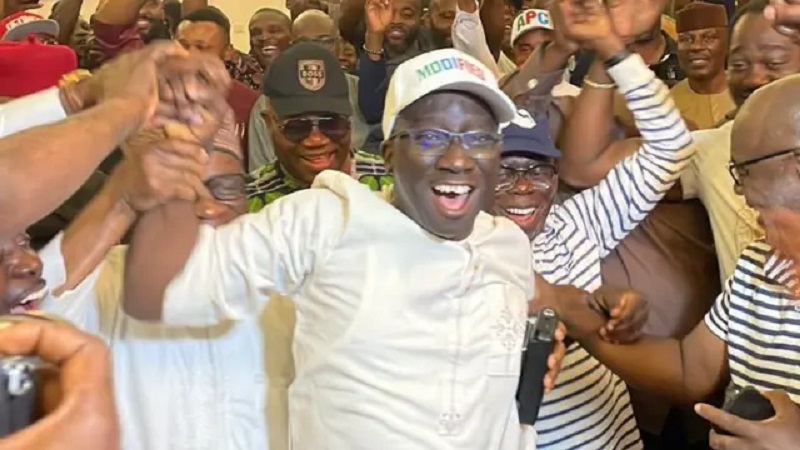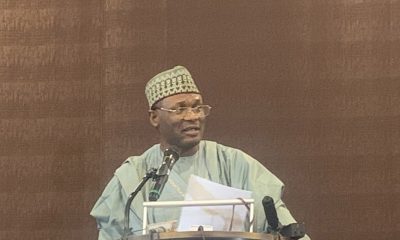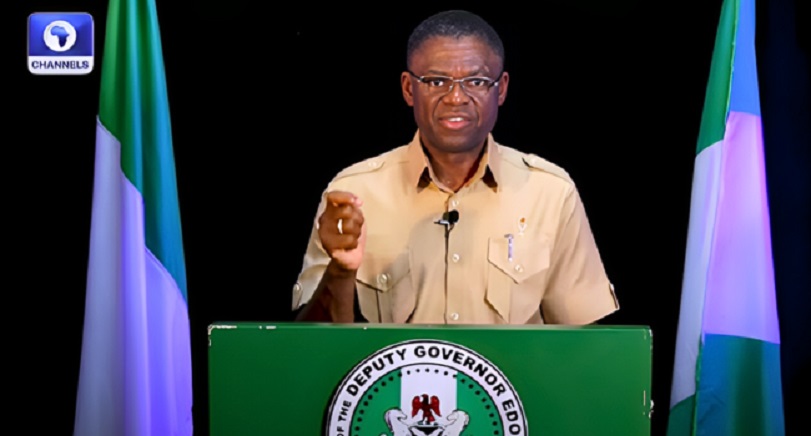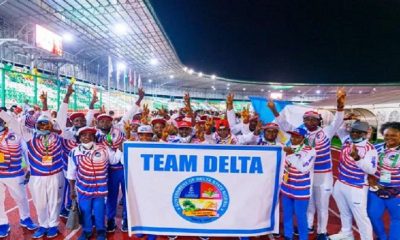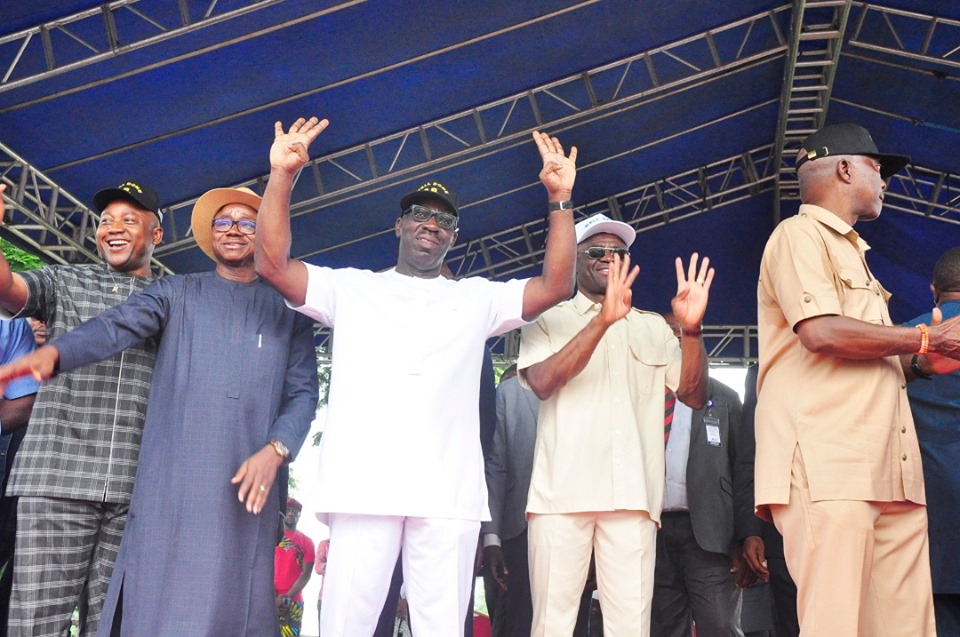General
Edo 2020: CNPP Blasts FG over ‘Vote Buying by Proxy’
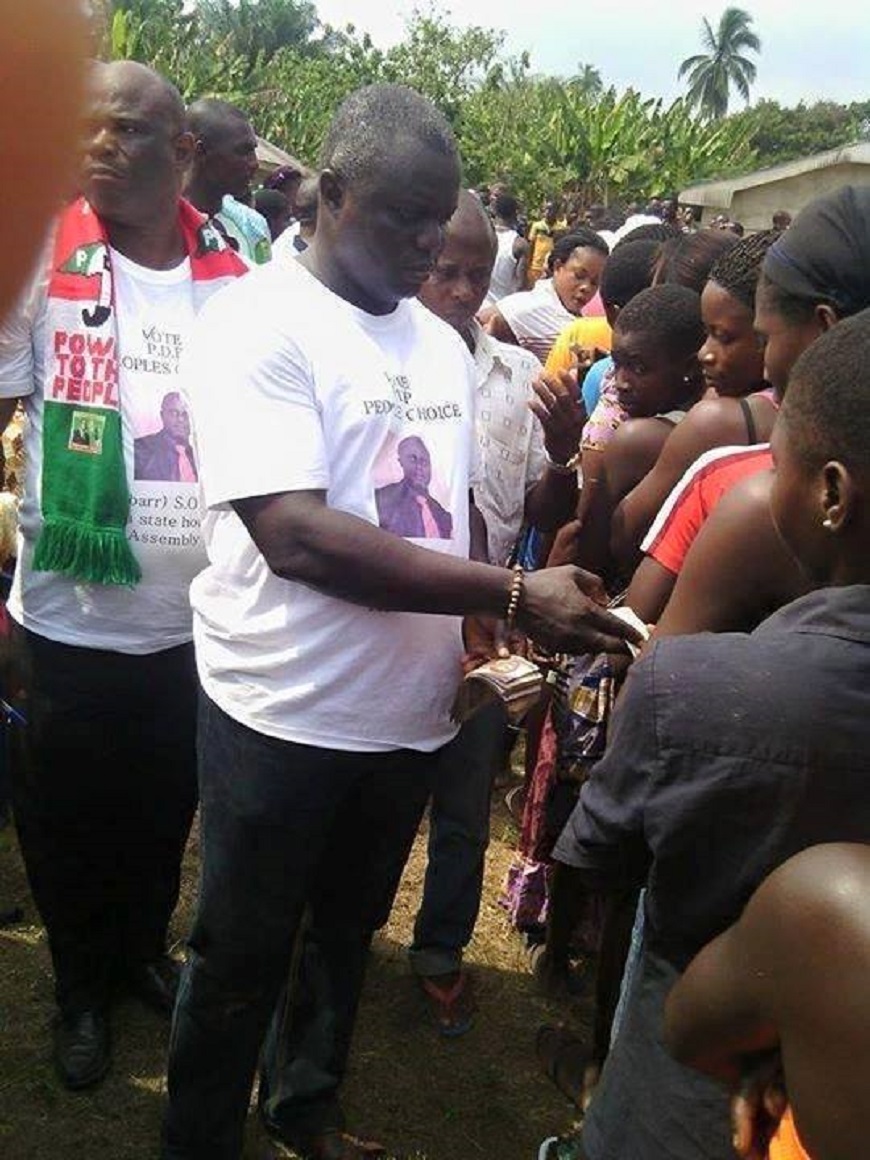
By Modupe Gbadeyanka
The Conference of Nigeria Political Parties (CNPP) has accused the federal government of being involved in what it described as ‘vote buying by proxy’ ahead of Saturday’s governorship election in Edo State.
The group, in a statement on Wednesday, strongly kicked against it, calling on the federal government to refrain from acts capable of killing Nigeria’s democracy.
“Acts of benevolence by the federal government in states during campaign periods have gone beyond coincidences to becoming a suspicious vote buying by proxy as is being witnessed in Edo State today,” a part of the statement signed by the Secretary-General of CNPP, Mr Willy Ezugwu, warned.
The group called on the international community “to seriously take note of the strategic death blows the ruling All Progressives Congress (APC) has continued to give Nigerian democracy since the historic election that brought the party into office in 2015.”
The CNPP further said, “The APC and PDP must be made to realise that they are not the only registered political parties in Nigeria and that every act of election rigging perpetrated by these two political parties that have continued to alternate their members and candidates is a death blow on democracy in Nigeria.”
“At least, the PDP could be forgiven for coming to a realisation that election rigging will kill the country’s democracy and gave Nigeria the most transparent election in the history of Africa in 2015, leading to the defeat of a sitting President who was also a candidate in the election.
“The ordinary Nigerian electorate who believed in the change mantra of the APC voted the then opposition party into office, reasoning that the party, with the anti-corruption disposition of President Muhammadu Buhari, will leave up to its promise to do things differently.
“Alas, five years down the line, Nigerians are now counting their losses rather than gains. APC is gradually killing all other political parties in the country,” the group said.
Continuing, it said, “We must recall that even with the level of election rigging under the PDP led federal government before the globally celebrated 2015 general election that brought the APC to power, smaller political parties were able to win governorship elections in states like Abia, Ondo, Edo, Anambra, to mention a few states.
“However, since the President Muhammadu Buhari led federal government have been conducting elections, opposition parties have been at the receiving end as the PDP and APC member can no longer be distinguished with their level of cross carpeting at the slightest convenience, and the result is the stunted democracy and a dying opposition parties that cannot win elections, not because they don’t have strong candidates but for the singular reason that they cannot afford to buy votes.
“Under the Buhari administration, with anti-corruption war as its selling point, electoral corruption, through all manners of federal government-induced vote buying, has been invented in the last five years.
“Such vote buying by proxy schemes like Tradamoni and school feeding programme, nicknamed social investment programme, were fully deployed ahead of 2019 general election, which was superintended by Vice President Yemi Osinbajo, who went from market to market to distribute cash to would-be voters before the elections, with allegations of the APC government collating the permanent voter’s card numbers of the beneficiaries.
“In Kogi State recently, billions of naira were released to the state few days to the state governorship election, an act seen by many stakeholders in the Nigerian pro-democracy family as monies intended for vote buying.
“Today, in Edo State, barely three days to the state governorship election, the National Directorate of Employment (NDE) under the Minister of State for Labour and Employment, Mr Festus Keyamo, and an APC member, found the wife of the APC governorship candidate, Idia Ize-Iyamu, as a partner in empowering women in the state.
“How would the wife of a candidate in an election be partnering with the federal government a few days before the election to empower Edo people? How do you defend it? That is a clear vote buying by proxy.
“Right now, desperate APC and PDP chieftains are engaging in a war of words over allegations and counter allegations of vote buying, which was never heard of in all the days of PDP’s electoral impunity.
“The CNPP, therefore, calls on the Independent National Electoral Commission (INEC) and all security agencies to save Nigerian democracy by preventing all acts of vote buying before they occur.
“If Nigeria must survive in 2023, it’s about time President Muhammadu Buhari prevailed on INEC to do what is right to save Nigerian democracy from desperate politicians who see elections as do or die.
“No lover of Nigeria will stand while the APC and PDP continue to rape democracy in broad daylight.
“The judiciary has not lived up to the general expectations of Nigerians in deciding post-election disputes. However, most pre-elections matters have been dealt with fairly by the judicial arm of the government but more needs to be done in post-election matters to discourage electoral violence and vote buying,” the CNPP stated.
General
IFMA Nigeria Gets Branch in Oyo, Picks Adejumo Olusola Babatunde as Coordinator
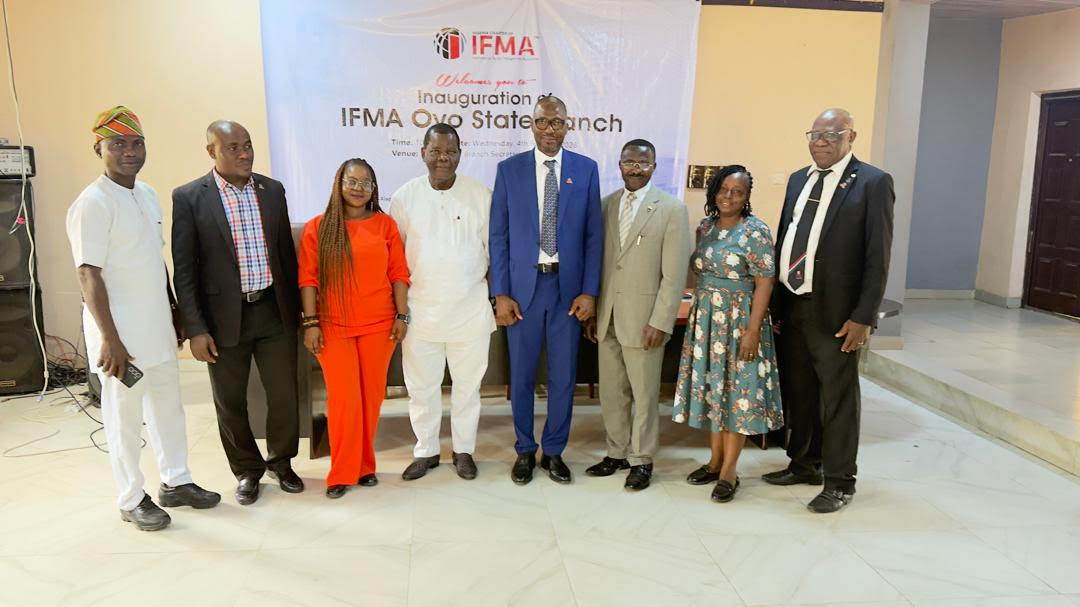
By Modupe Gbadeyanka
A new branch of the International Facility Management Association (IFMA) Nigeria Chapter has been established in Oyo State, with Mr Adejumo Olusola Babatunde chosen as Coordinator.
The organisation set up an arm in the South-West state in a bid to expand its footprint in the country. Mr Babatunde will be assisted by other executive committee members, including Mr Ajiboye Olusola Akeem as Secretary, and Mrs Adeniran Olaide as Treasurer.
At the inauguration of the branch at the Nigerian Society of Engineers (NSE) Secretariat in the Akobo area of Ibadan, the Oyo State capital, the president of IFMA Nigeria, Mr Sheriff Daramola, expressed delight at the successful inauguration of the branch and commended members for their commitment to the growth of facility management in Nigeria.
He highlighted IFMA’s global heritage, noting that the association is supporting over 25,000 members in more than 140 countries worldwide. Mr Daramola emphasised IFMA’s strong global network, the world’s largest and most widely recognised association for facility management professionals, headquartered in the United States and its growing influence in Africa, the Middle East and Europe.
“IFMA members have taken positions of authority across federal, state, and private institutions; IFMA Nigeria is positioned to ensure our professionals are the first choice for global investors entering the Nigerian market,” he stated.
The Legal Adviser of IFMA, Nigeria, Mr Sola Fatoki, who shared this sentiment, said, “Since 1997, when IFMA Nigeria was established, the association has equipped facility management professionals with integrated knowledge spanning human behaviour, infrastructure, and the built environment.”
He encouraged engineers, architects, surveyors, ITC, Technology innovators, data analysts and allied professionals to see IFMA as their professional home and outlined the functions and responsibilities of branch executive committees.
In his remarks, Mr Babatunde expressed gratitude to the national council for the opportunity to serve and pledged to ensure the success of the branch, focusing on unity and the professional advancement of stakeholders in the region.
General
We Didn’t Recommend Ceding Disputed Oil Wells to States—RMAFC
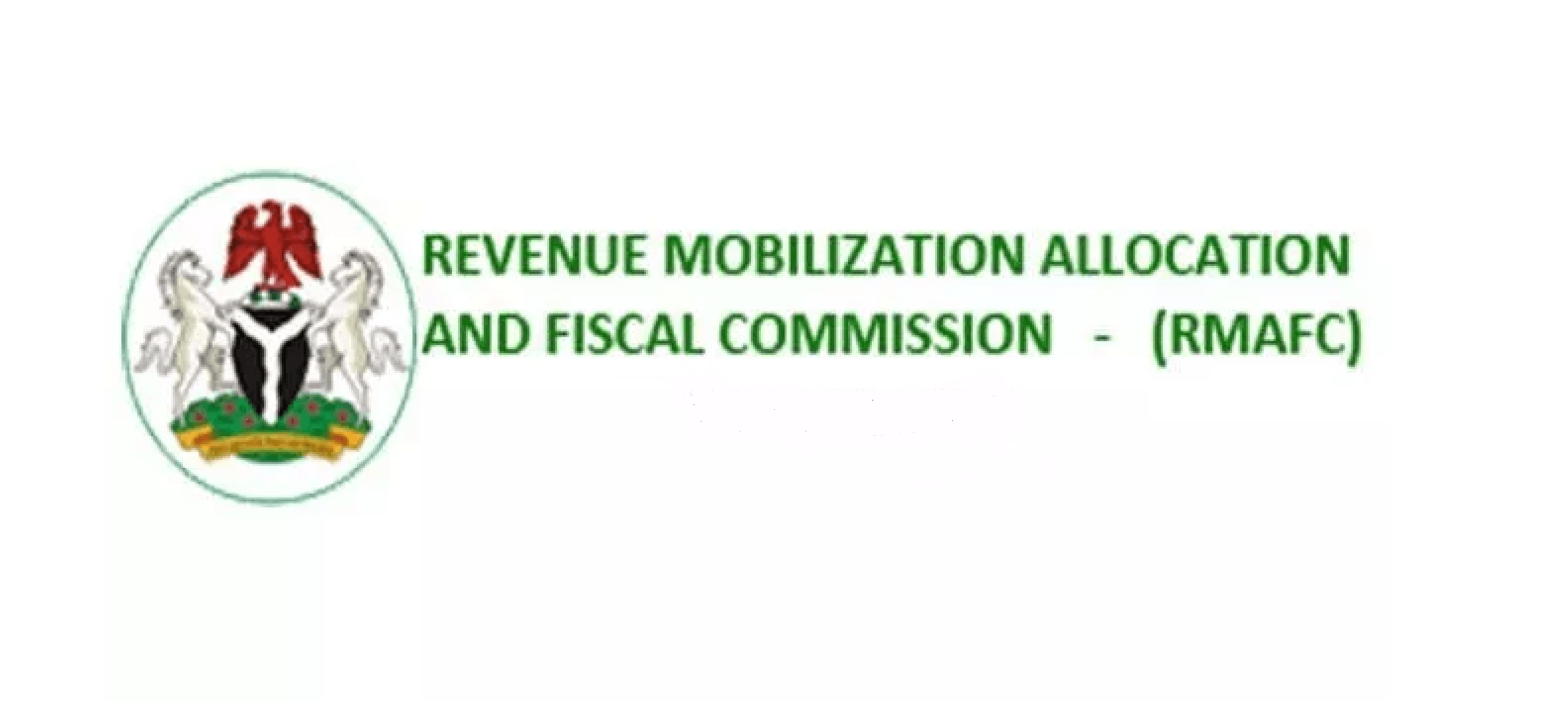
By Adedapo Adesanya
The Revenue Mobilisation Allocation and Fiscal Commission (RMAFC) has denied reports that some disputed crude oil and gas wells have been recommended for ceding to specific oil-producing states.
In a statement issued on Sunday, the chairman of the commission, Mr Mohammed Shehu, said the attention of RMAFC had been drawn to a “purported report allegedly issued by the Inter-Agency Committee on the Verification of Coordinates of Disputed Crude Oil and Gas Wells between States,” which was circulating in sections of the national media (excluding Business Post).
The agency described the report as “misleading, premature, and does not represent the position or conclusions of the Commission.”
“At this stage, there is no finalised recommendation or decision regarding the ceding or reallocation of any oil wells, as due institutional processes are still ongoing,” the statement read.
The organisation explained that it operates a clearly defined and transparent procedure in handling assignments of national significance, stressing that the process on the disputed oil wells had not been concluded.
It disclosed that it only received a draft report from the Federal Government’s Inter-Agency Committee on Nigeria’s Oil-Producing States on Friday, February 13, 2026, which reportedly projected Cross River State as an oil-producing state.
The report, covering the nationwide 2017–2025 verification of crude oil and gas coordinates, was presented to the Chairman of RMAFC by 10 of the 14 members of the committee.
The exercise, which ran from August 2025 to February 2026, involved extensive field verification, technical reconciliation of state submissions, and a final plenary plotting of coordinates at RMAFC headquarters between January 24 and 31, 2026.
“Consistent with established protocol, the draft document has been transmitted to relevant technical and statutory stakeholders, namely the Nigerian Upstream Petroleum Regulatory Commission, the National Boundary Commission, and the Office of the Surveyor General of the Federation, for detailed review, observations, and technical input,” the commission stated.
According to the statement, after the observations and recommendations of the agencies are received, the matter will be subjected to further scrutiny by the commission’s internal tripartite committees, comprising the Committee on Crude Oil, Gas and Investment and the Legal Matters Committee.
“These committees will undertake comprehensive technical and legal reviews before presenting their findings to the Plenary Session of RMAFC for deliberation and final recommendations,” it added.
The commission further explained that upon completion of the institutional processes, its final report would be formally transmitted to the President and the Attorney-General of the Federation for necessary consideration and further action in line with applicable laws and constitutional provisions.
General
Social Media Platform X Suffers Outages Globally

By Adedapo Adesanya
Social media platform, X, formerly known as Twitter, suffered an outage globally on Monday as millions of users could not use the service.
The widespread outages have been reported by thousands of users across several countries, including Nigeria, the United States, the United Kingdom, Turkey, and India, among others.
According to data from Downdetector, a website that tracks service disruptions based on user reports, complaints about access to X started to pick up around 1:00 p.m. local time in Nigeria.
The cause of the outage was not immediately clear, and X has not put out any comment, but users told Business Post that the platform is not loading or cannot be reached, and the pattern of complaints suggests the issue is not limited to a single region.
Its developer platform status page stated “all systems are operational” all morning despite the reports.
The outage is the latest to hit internet services. X suffered a similar outage in March 2025, while a Cloudflare service outage caused access problems and downtime for various websites, including X, last November.
Microsoft’s Azure had also faced an issue last year, while disruption at Amazon AWS caused global turmoil among thousands of websites and some of the most popular apps, such as Snapchat and Reddit in October
-

 Feature/OPED6 years ago
Feature/OPED6 years agoDavos was Different this year
-
Travel/Tourism10 years ago
Lagos Seals Western Lodge Hotel In Ikorodu
-

 Showbiz3 years ago
Showbiz3 years agoEstranged Lover Releases Videos of Empress Njamah Bathing
-

 Banking8 years ago
Banking8 years agoSort Codes of GTBank Branches in Nigeria
-

 Economy3 years ago
Economy3 years agoSubsidy Removal: CNG at N130 Per Litre Cheaper Than Petrol—IPMAN
-

 Banking3 years ago
Banking3 years agoSort Codes of UBA Branches in Nigeria
-

 Banking3 years ago
Banking3 years agoFirst Bank Announces Planned Downtime
-

 Sports3 years ago
Sports3 years agoHighest Paid Nigerian Footballer – How Much Do Nigerian Footballers Earn


